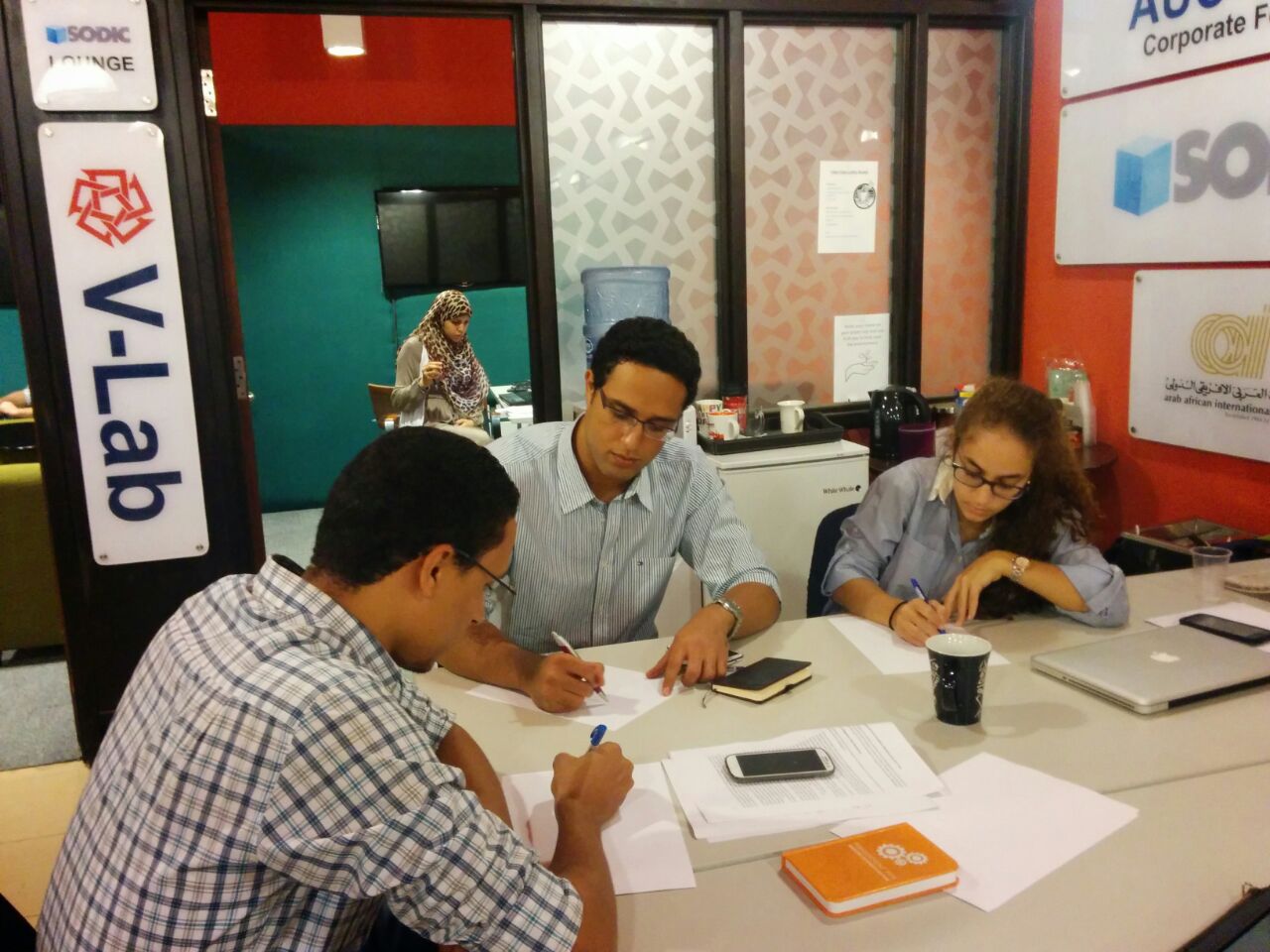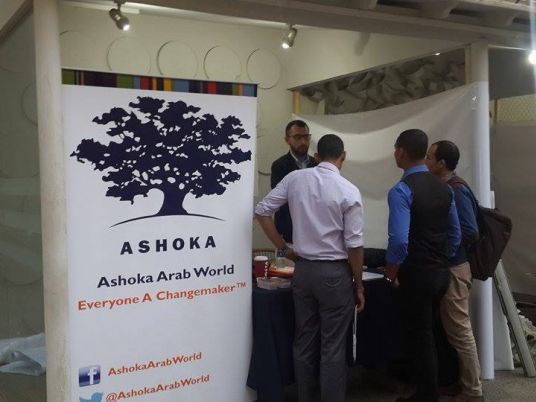Social entrepreneurs are people who have a strong passion for helping others and the organizational skills to turn this passion into a project, a company… or even a movement. For Ehaab Abdou and Iman Bibars, however, social entrepreneurship has become a way of life.
The two assembled a group of socially active and passionate people to discuss Abdou’s latest project, a “how to” book for the budding social entrepreneur entitled A Practitioner’s Guide for Social Entrepreneurs in Egypt and the Arab Region. In the same spirit as Trump University Entrepreneurship 101 by Donald Trump and The 4-Hour Workweek by Timothy Ferriss, Abdou assembled his know-how and put together a step-by-step manual for planning out a successful NGO or “citizen sector organization” and becoming what the organization Ashokahas called a “change maker.”
Bibars, a member of Ashoka Global’s Leadership Group as well as one of the initiators of Ashoka Arab World, spoke a little about Ashoka, an organization that seeks to aid social entrepreneurs. “One of the most important challenges is to build a bridge between the business and social sector,” explained Bibars. “We must educate the business sector about the social sector so that the business sector in this part of the world starts investing more in the social sector.”
Abdou is also a member of Ashoka and a founder of Nahdet El Mahrousa, Fathet Kheir and the Ana Masry band. A lively and informative summary of Abdou’s publication ensued in which he emphasized the importance of knowing yourself as well as your project. “You have to be aware of your weaknesses in order to better choose your team mates to fill in where you know you cannot,” explained Abdou. “I know I’m a great at the start up; I can motivate people and get ideas flowing.” But Abdou is also aware of where he may require help. “I’m not as good with continuing the project later on,” he said.
Abdou was also adamant about the necessity of “being extremely passionate about your goal or else risk losing interest.” Abdou believes that if you are motivated by the trendy-ness of social work or by a cause that “all your friends are into,” you will not have the willpower to become a successful entrepreneur.
A number of audience members had questions about their projects and the logistics behind them. Bibars expressed concern for the financial welfare of social projects. The issue of fund raising gave Abdou the opportunity to hand the microphone to Raghda al-Ebrashi, founder of Alashanek Ya Balady, and the 2009 winner of the King Abdullah II Award for Youth Innovation and Achievement (KAAYIA). Ebrashi’s work has been in development and her advice about being able to sustain financing was concise and concrete. Ebrashi offered three different strategies for ensuring sustainable funds: the mission centric strategy, the related strategy and the unrelated strategy.
Mission centric strategy: This strategy involves using your core program to generate revenue — for instance, charging the private sector for training and coaching employees with vocational diplomas.
Related strategy: This strategy means training the employees with vocational diplomas for free but raising funds by providing programs to private businesses for money.
Unrelated strategy: Once again, if you are training the employees or attendees with vocational diplomas, you could open a side business like a dry cleaners or a photocopy stand to produce income for the organization.
“The guide is a living document,” says Abdou about his publication, and all the same, structurally it is a great source for the social entrepreneur in the making. If social entrepreneurship is in your agenda or if you, as Abdou says, “can’t sleep at night because you are obsessing about a specific social problem,” then maybe social entrepreneurship is the path for you.
Published by the AUC Gerhart Center for Philanthropy and Civic Engagement in October 2010, the book is available at: http://www.aucegypt.edu/research/gerhart/Documents/Practitioner%27s%20Guide.pdf


